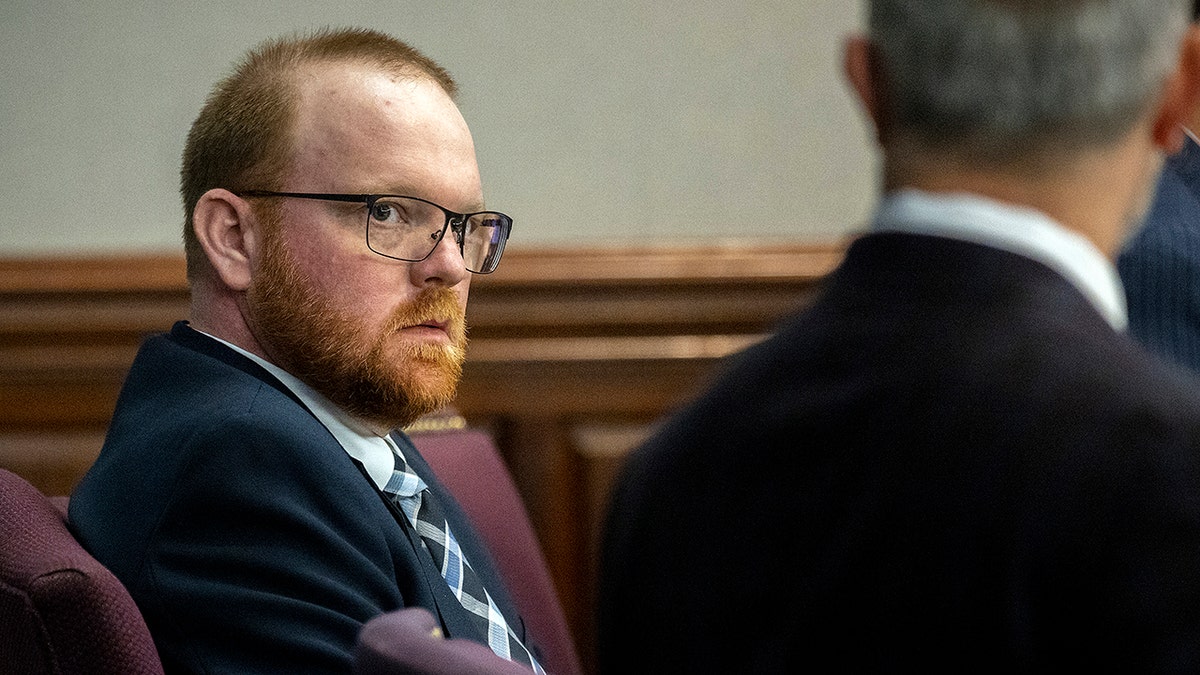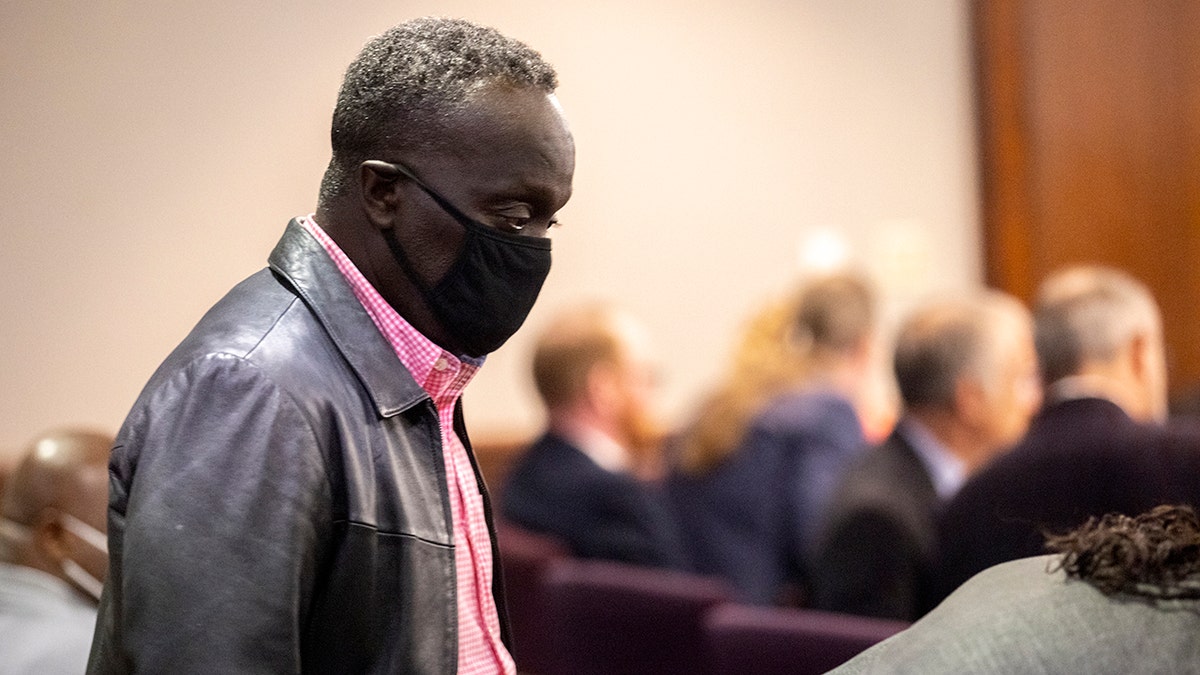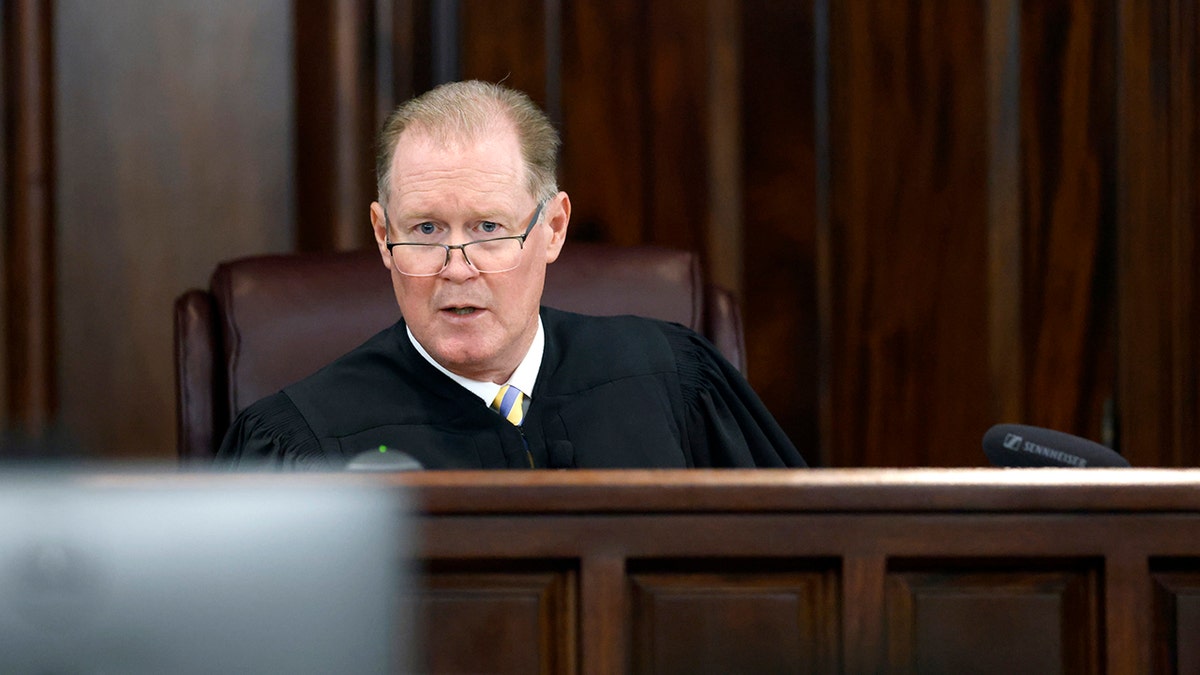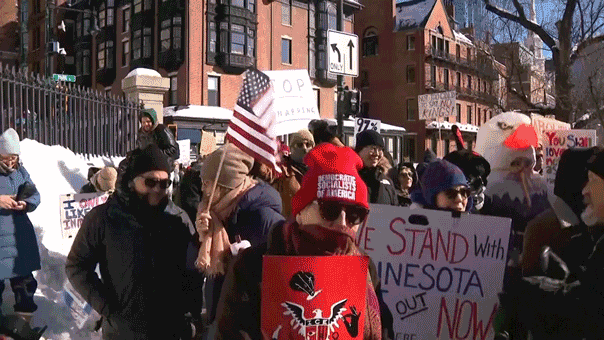Fox News Flash top headlines for November 5
Fox News Flash top headlines are here. Check out what's clicking on Foxnews.com.
White men in pickup trucks chased Ahmaud Arbery for five minutes, and one threatened to shoot him, as they cut off his escape from a Georgia subdivision and ultimately killed the 25-year-old Black man with a shotgun, a prosecutor told a trial jury Friday.
In her opening statement, prosecutor Linda Dunikoski said the short cellphone video that stirred national outrage over the slaying gave only a glimpse of the attack on Arbery, who gave his pursuers no reason to suspect him of any wrongdoing.
"They assumed that he must have committed some crime that day," Dunikoski said. "He tried to run around their truck and get way from these strangers, total strangers, who had already told him that they would kill him. And then they killed him."

Travis McMichael listens to one of his attorneys during a motion hearing in the Glynn County Courthouse on Thursday, Nov. 4, 2021, in Brunswick, Georgia. (AP Photo/Stephen B. Morton, Pool)
AHMAUD ARBERY MURDER TRIAL BEGINS AFTER CONTROVERSIAL JURY SELECTION
Arbery’s killing on Feb. 23, 2020, was largely ignored until the video leaked and deepened a national reckoning over racial injustice.
Greg McMichael and his adult son, Travis McMichael, armed themselves and pursued Arbery in a pickup truck as he ran through their neighborhood just outside the port city of Brunswick. A neighbor, William "Roddie" Bryan, joined the chase and recorded graphic video of Travis McMichael shooting Arbery three times.
The chase started on a Sunday afternoon when a neighbor called a nonemergency police number after seeing Arbery wandering inside a home under construction, where security cameras had recorded him before.
Greg McMichael saw Arbery run past his home and ran inside to alert his son. They grabbed guns, jumped in their truck and gave chase, Dunikoski said. Bryan joined them after seeing Arbery run past the McMichaels' truck outside his home.
She said Greg McMichael later told police that at one point during the chase he shouted at Arbery, "Stop or I’ll blow your f—-ing head off!"
When a police officer who responded to the shooting asked Greg McMichael if Arbery had broken into a house, he told the officer: "That’s just it. I don’t know... I don’t know, he might have gone in somebody’s house," according to Dunikoski.

Marcus Arbery, center, father of Ahmaud Arbery, takes his seat during a pretrial motion hearing in the trial of Greg and Travis McMichael and their neighbor, William "Roddie" Bryan, at the Glynn County Courthouse on Thursday, Nov. 4, 2021, in Brunswick, Georgia. (AP Photo/Stephen B. Morton, Pool)
"All three of these defendants did everything they did based on assumptions — not on facts, not on evidence," Dunikoski said. "And they made decisions in their driveways based on those assumptions that took a young man’s life."
Defense attorneys planned to give their own opening statements later Friday.
Georgia's response to the killing has become part of a broader effort to address racial injustice in the criminal legal system after a string of fatal encounters between police and Black people such as George Floyd in Minnesota and Breonna Taylor in Kentucky.
Superior Court Judge Timothy Walmsley swore in the disproportionately White jury Friday before proceedings began. All three defendants are standing trial together, charged with murder and other felonies.
Arbery had been dead for more than two months before the three men were charged and jailed last year. Greg McMichael, a retired investigator for the local district attorney, told police the men were trying to stop Arbery because they suspected he was a burglar. Security cameras had recorded him entering a nearby house under construction.
Greg McMichael said his son killed Arbery in self-defense after Arbery attacked him with his fists and tried to take Travis McMichael's gun.
Prosecutors say Arbery was merely out jogging, was unarmed and had committed no crimes in the neighborhood. When Bryan's video of the killing leaked online in May 2020, the Georgia Bureau of Investigation took over the case from local police. GBI agents arrested the McMichaels the next day, and charged Bryan two weeks later.
The judge and attorneys took two and a half weeks to select a jury. Nearly 200 people summoned to jury duty were questioned extensively about what they knew about the case, how many times they had seen the video and if they had any personal connection to Arbery or the defendants.

Superior Court Judge Timothy Walmsley speaks during opening statements in the trial of Greg McMichael and his son, Travis McMichael, and a neighbor, William "Roddie" Bryan at the Glynn County Courthouse on Friday, Nov. 5, 2021, in Brunswick, Georgia. (Octavio Jones/Pool Photo via AP))
Controversy erupted on Wednesday, the final day of jury selection, when prosecutors objected to a final jury consisting of 11 Whites and one Black juror. They argued that defense attorneys had cut eight potential jurors from the final panel because they are Black, which the U.S. Supreme Court has declared unconstitutional.
The judge agreed that there appeared to be "intentional discrimination" but said Georgia law limited his authority to intervene because defense attorneys stated non-racial reasons for excluding Black panelists from the jury.
One juror, a White woman, was dismissed Thursday for medical reasons. Fifteen total panelists will hear the trial — 12 jurors plus three alternates. The judge has not given the races of the alternate jurors, and they were not asked to state their race in open court.
CLICK HERE TO GET THE FOX NEWS APP
Court officials have said the trial could last two weeks or more.
If the defendants are acquitted, their legal troubles won't be over. They have also been indicted on federal hate crime charges. A U.S. District Court judge has scheduled that trial to begin Feb. 7.









































